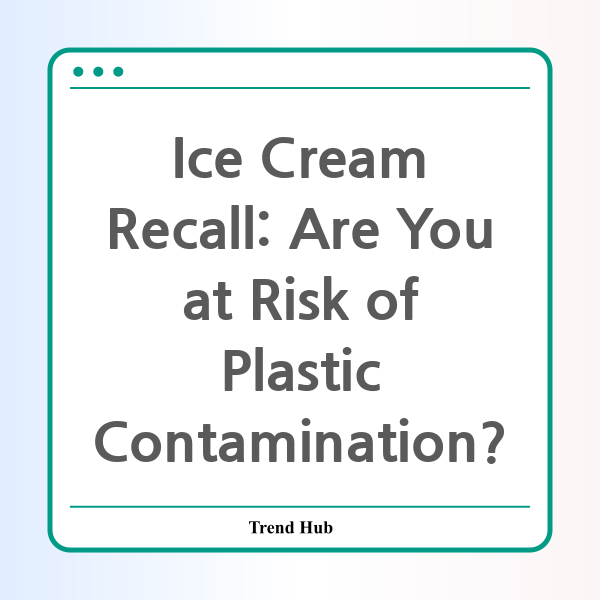* This website participates in the Amazon Affiliate Program and earns from qualifying purchases.

With the summer sun shining and ice cream becoming a staple for many, a recent food recall has cast a shadow over our beloved frozen treats. More than 17,800 cartons of ice cream have been recalled due to possible plastic contamination, leaving many consumers wondering if their favorite flavors are safe.
On April 25, 2025, Wells Enterprises, based in Le Mars, Iowa, announced a voluntary recall of 22 flavors of ice cream and frozen yogurt. This action came after concerns arose about small pieces of plastic potentially being present in the products. The recall, which falls under the FDA's Class II category, implies that while this situation is serious, the likelihood of severe health consequences is low. So far, no injuries or adverse reactions have been reported.
These affected products, packaged in 3-gallon tubs, are distributed across over 100 locations throughout the United States, including states like Michigan, Illinois, Texas, and of course, Iowa. The flavors that have been recalled include popular selections such as Rocky Road, Mocha Almond Fudge, and Country Rich Vanilla. If you’ve stocked up on these favorites, you might want to do a thorough check of your freezer.
Here’s a breakdown of some of the key details regarding the recall:
- Recall date: April 25, 2025
- Affected flavors: 22 flavors including Vanilla Frozen Yogurt, Glenview Farms Vanilla, and more.
- Packaging: 3-gallon tubs
- Best if Used By dates: March 2026 through October 2026
This recall serves as a critical reminder about the importance of food safety and vigilance. While the company has begun reaching out to distributors to remove the affected products from circulation, consumers are urged to double-check their freezers. The FDA recommends disposing of any products that match the recall information to avoid any health risks.
Why Food Recalls Matter
Food recalls are essential in maintaining public health and safety. When a potential contaminant is identified, companies and regulatory agencies like the FDA work together to swiftly inform the public and prevent potential health risks. However, these situations highlight how even trusted brands can face serious quality control issues.
The presence of foreign objects like plastic in food products not only poses health risks but can also damage a brand’s reputation. Companies like Wells Enterprises typically have rigorous quality control measures in place, but lapses can still occur. As consumers, staying informed and proactive is key in safeguarding our health.
How to Handle a Food Recall
1. **Check Your Freezer**: If you've purchased ice cream recently, inspect it against the recall list provided by the FDA.
2. **Follow Disposal Guidelines**: If you have any affected products, dispose of them immediately to prevent any risk of consumption.
3. **Contact the Company**: If you have questions or concerns, don’t hesitate to reach out to the brand for more information.
4. **Stay Informed**: Keep an eye on food safety news and recall announcements to remain aware of any potential risks.
Enjoying ice cream on a hot summer day shouldn’t come with the concern of contaminants. By being vigilant and taking action in light of recalls, you’ll ensure that your ice cream indulgences remain safe and enjoyable.
* This website participates in the Amazon Affiliate Program and earns from qualifying purchases.